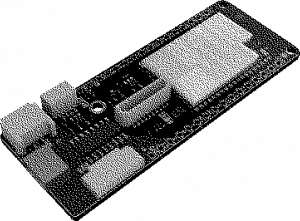Difference between revisions of "Zoönology"
| Line 9: | Line 9: | ||
=== Environmental sensors === | === Environmental sensors === | ||
==== Soil moisture sensor ==== | ==== Soil moisture sensor ==== | ||
| − | ==== UV/IR/Visible Light Sensor ==== | + | ==== UV/IR/Visible Light sensor ==== |
| + | ==== Air Quality Sensor ==== | ||
| + | ==== Temperature/Humidity Sensor ==== | ||
| + | ==== Pressure/Temperature/Altitude sensor ==== | ||
=== Code === | === Code === | ||
Revision as of 18:15, 30 January 2023
Zoöp
"Zoöp" is an experimental model for organizations to transition towards ecological justice - by not only preaching, but radically practicing it. In a Zoöp, non-humans have an equal voice next to humans, on all levels of the organization and its decision-making. As the initiators describe it: “Zoöp is short for Zoöperation: coöperation with zoë – (Greek for ‘life’) Together with other Zoöps we work towards the transformation of our economy into a regenerative human-inclusive ecosystem, a network of exchange of matter, energy and meaning that supports all bodies in their existence”. [Zoöp manifesto]
Zoönology: Observing & Sensing
The name of this workshop, "Zoönology", is the combination of technology and zoë. It may seem paradoxical to combine computation and the model of Zoöp as computation depends on the extraction of finite resources. Therefore, as we make the connection during the workshop by making, the question arises to whether computing and network technologies could have a place in regenerative, human-inclusive, reciprocal ecosystems [zoop.earth]. In the workshop we will use a low powered ESP32 micro controller and a environmental sensor to observe non-human or non-living entities.
Environmental sensors
Soil moisture sensor
UV/IR/Visible Light sensor
Air Quality Sensor
Temperature/Humidity Sensor
Pressure/Temperature/Altitude sensor
Code
All the starter templates and final code can be found on our Github page.
Planning:
Week 1: (7th of February)
* Introduction in the ESP32 micro controller & sensors * Picking your environmental sensor for coming weeks * Research your sensor
Week 2: (14th of February)
* Connecting your sensor to the Lolin D32 Pro * Displaying sensor values on a local captive portal
Week 3: (21st of February)
* Finishing your captive portal
Week 5: (7th of March)
* Field testing
Week 6: (14th of March)
* Extracting sensor values from the field test * Documenting findings on the captive portal
Week 7: (21th of March)
No class
Week 8: (28th of March)
* Finishing up the captive portal
Tutorials
To be added ...

